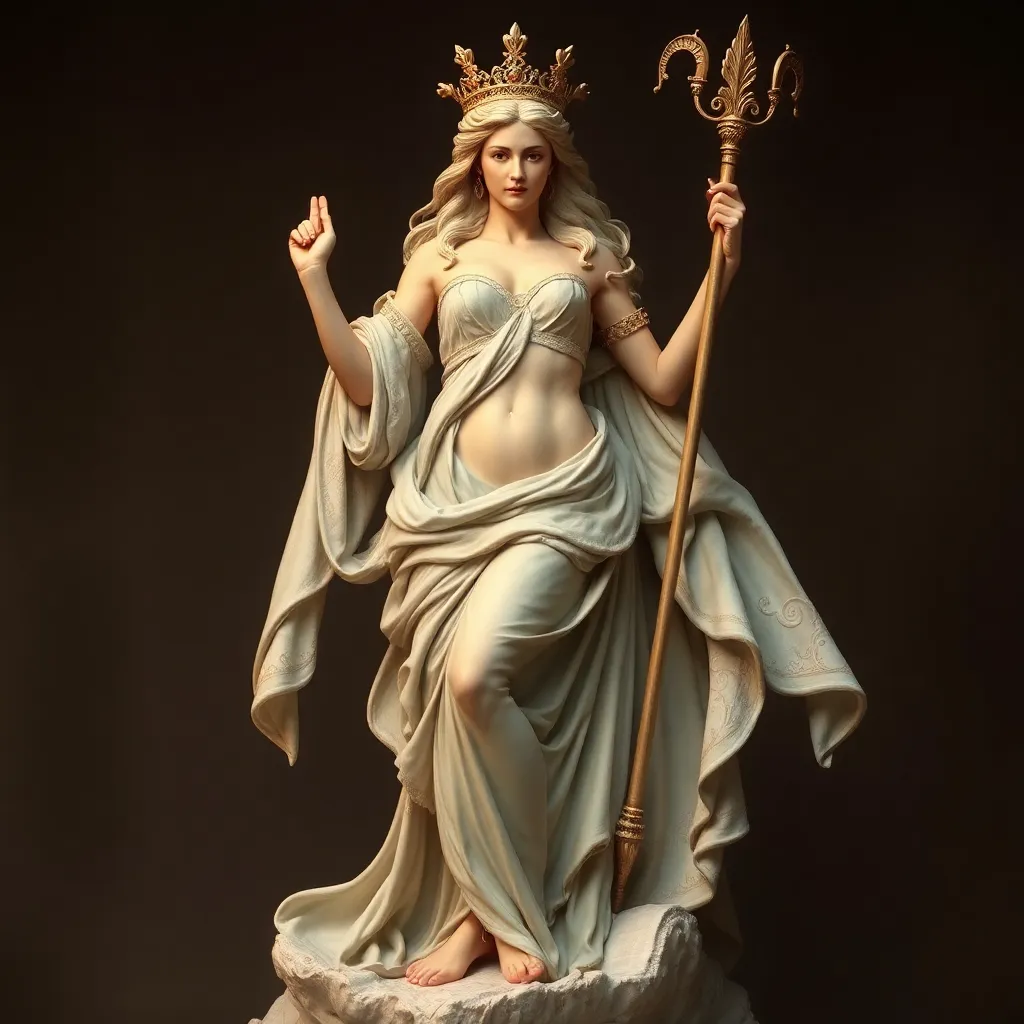The Role of Aphrodite in the Myths of Odysseus: Love and Loyalty
I. Introduction
Odysseus, the legendary hero of Homer’s epic poem, “The Odyssey,” is a central figure in Greek mythology, known for his intelligence, cunning, and the long journey he undertakes to return home after the Trojan War. His character embodies the themes of adventure, struggle, and the human experience. Alongside him, Aphrodite, the goddess of love and beauty, plays a significant role within the tapestry of Greek myths, influencing various narratives through her powerful presence.
This article explores how Aphrodite shapes the themes of love and loyalty in the myths surrounding Odysseus. Her influence extends beyond mere romantic entanglements, affecting the dynamics of relationships and the moral dilemmas faced by Odysseus throughout his journey.
II. The Nature of Aphrodite: Goddess of Love and Beauty
Aphrodite, born from the foam of the sea, is often depicted as a figure of extraordinary beauty and charm. Her origins are steeped in myth, with various stories telling of her birth from the sea at Cyprus or being the daughter of Zeus and Dione. Regardless of her origin, her attributes include:
- Beauty: Representing the ideal of physical and inner beauty.
- Desire: She governs the passions and desires of both mortals and gods.
- Love: Her influence extends to various forms of love, including romantic, familial, and platonic.
Aphrodite’s role in shaping human emotions is profound. As the goddess of love, she has the power to instill desire, jealousy, and loyalty in individuals. Her domain is a complex interplay between love and loyalty, emphasizing how beauty and affection can lead to both harmony and conflict.
III. Aphrodite’s Influence on Odysseus’s Journey
The theme of love is prevalent in “The Odyssey,” where Odysseus encounters various characters that test his loyalties and desires. Aphrodite’s presence can be felt in key moments of his journey:
- Odysseus’s longing for home and Penelope reflects a deep emotional bond, influenced by Aphrodite’s ideals of love.
- His encounters with enchanting figures, such as Circe and Calypso, showcase the power of attraction and desire.
Aphrodite’s influence significantly impacts Odysseus’s character. His decisions are often swayed by the love he harbors for Penelope, even amidst temptations. This divine love drives his determination to return home, showcasing how deeply personal relationships intertwine with divine influence.
IV. The Role of Female Characters: Penelope and Calypso
Central to Odysseus’s narrative are two prominent female figures: Penelope and Calypso. Their contrasting roles highlight different aspects of love and loyalty.
A. Analysis of Penelope’s Loyalty
Penelope, Odysseus’s wife, epitomizes loyalty and faithfulness. For twenty years, she waits for Odysseus’s return, warding off suitors who seek her hand. Her cunning and intelligence mirror Odysseus’s own qualities, as she devises strategies to delay remarriage.
B. Calypso’s Enchantment
Calypso, the nymph who detains Odysseus on her island, represents the seductive and enchanting aspects of love. Her desire for him is potent, and although she offers him immortality, Odysseus ultimately yearns for his home and Penelope. This dynamic reflects Aphrodite’s influence, as both love and longing are at play.
C. Contrast Between Penelope and Calypso
Penelope and Calypso serve as contrasting representations of love:
- Penelope embodies steadfast loyalty and patience.
- Calypso symbolizes the allure of passion and the temptation of abandoning one’s commitments.
This contrast emphasizes the complexity of love, highlighting how it can inspire loyalty or lead to betrayal.
V. The Concept of Loyalty in Odysseus’s Relationships
Odysseus’s loyalty to Penelope is a cornerstone of his character. Throughout his adventures, he faces numerous challenges that test this fidelity:
- His encounters with Circe and Calypso present temptations that threaten his marriage.
- Despite these temptations, his heart remains anchored to Penelope, demonstrating his commitment.
Aphrodite’s influence complicates the notion of loyalty, as her divine power can sway emotions, making Odysseus’s struggle more poignant. Ultimately, his journey illustrates the tension between desire and loyalty, a theme central to many of the myths surrounding love.
VI. Divine Intervention and the Power of Love
Aphrodite’s involvement in Odysseus’s life is not always direct but is felt through the actions of other gods. Instances of divine intervention highlight the interplay between fate and free will:
- The goddess Athena aids Odysseus, demonstrating that love and loyalty are not solely human experiences but also divine prerogatives.
- Through Aphrodite’s influence, themes of love and attraction permeate the narrative, guiding Odysseus’s decisions.
Love emerges as a powerful motivator behind Odysseus’s actions, illustrating how divine forces shape human experiences.
VII. Symbolism and Themes: Love, Loyalty, and Betrayal
The duality of love is a significant theme in the myths surrounding Odysseus. Love serves as both a source of strength and a potential downfall:
- Odysseus’s love for Penelope drives him to overcome numerous obstacles.
- Conversely, the allure of other women poses risks to his loyalty and marital bond.
Betrayal becomes a recurring motif, particularly through Calypso’s enchantment and the suitors’ advances on Penelope. Aphrodite’s influence is evident in these moments, as her gifts of love can lead to both devotion and disloyalty.
VIII. Conclusion
Aphrodite’s role in shaping the narrative of Odysseus is multifaceted, intertwining themes of love and loyalty throughout “The Odyssey.” Through the contrasting figures of Penelope and Calypso, and the divine interventions that guide Odysseus’s journey, her influence is palpable. Ultimately, the myths surrounding Odysseus invite us to reflect on the complexities of love, the challenges of loyalty, and the profound impact of desire on human destinies.




